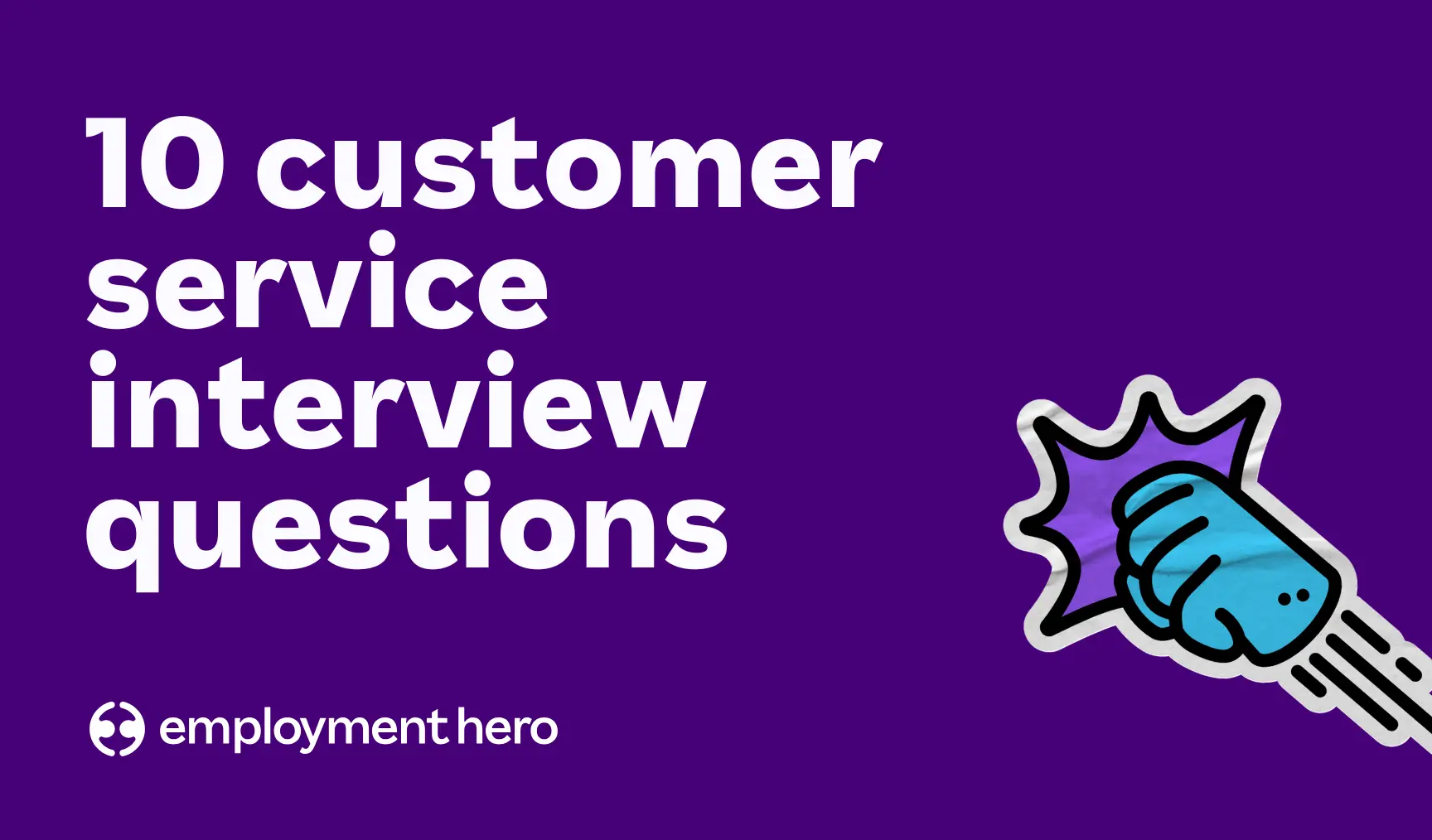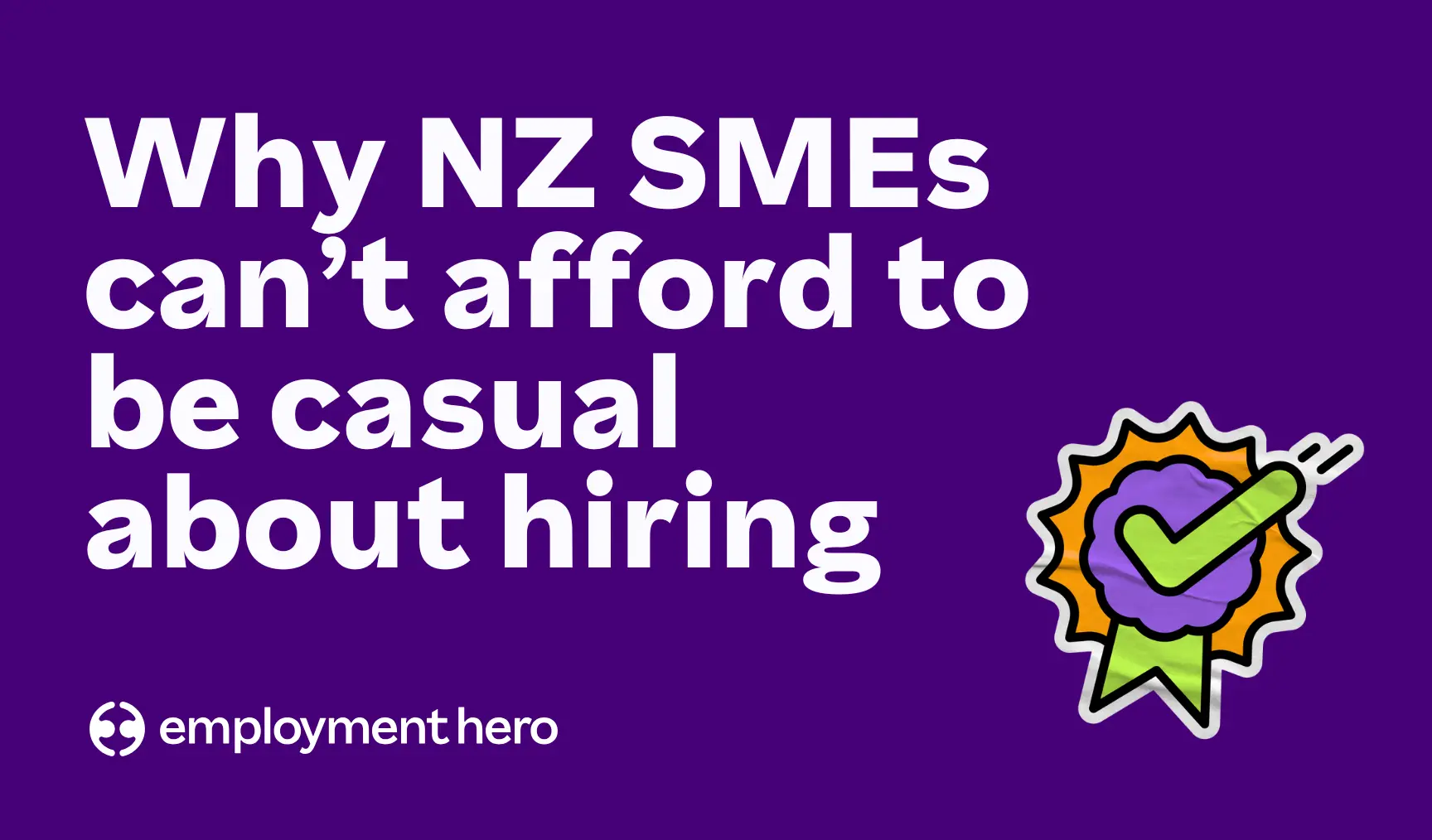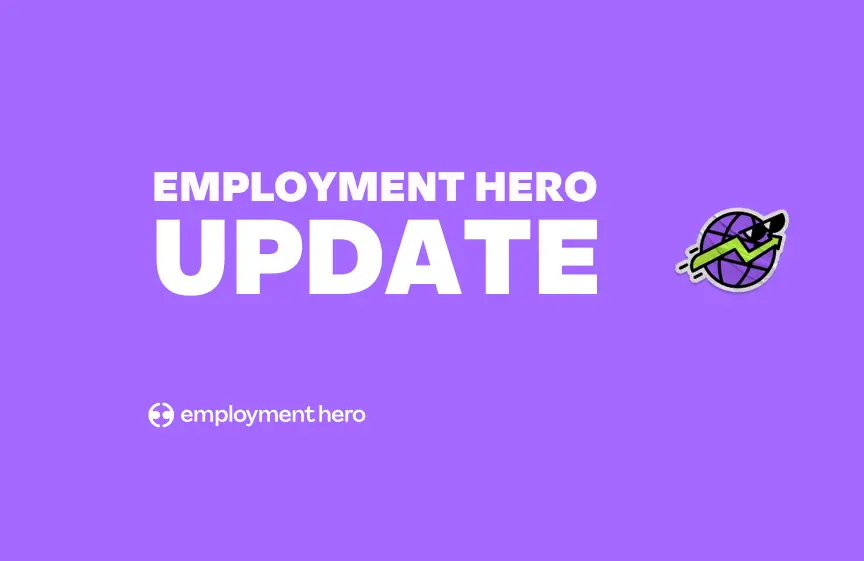How to better support Muslim employees during Ramadan
Need guidance on how to be considerate to your Muslim employees during Ramadan? Here are our tips for building a more inclusive and supportive workplace.

Contents
Ramadan is a holy month for Muslims around the world. It is marked by fasting from dawn till dusk. But beyond that, Ramadan is a month of prayer, reflection, and community.
For Muslim employees, this can be a challenging time as they balance their work responsibilities with spiritual obligations. As an employer or colleague, it’s important to understand and respect the significance of Ramadan, and make a concerted effort to support your Muslim coworkers during this time.
If you’re unsure of the best ways to support them, we’re here to help. In this blog, we’ll explore practical ways to show your support, such as making accommodations for fasting, offering flexibility in scheduling, and maintaining cultural sensitivity in the workplace.
Want to create a more inclusive and supportive workplace for all employees? Let’s get started.
What is the meaning of Ramadan?
Ramadan is the ninth month of the Islamic lunar calendar and is considered the holiest month in the Islamic faith. It is a time of spiritual reflection, self-improvement, renewed faith and heightened devotion.
This year, Ramadan starts on 11th March, and is expected to end on 10th April. During this entire month, Muslims will observe daily fasting from sunrise until sunset, abstaining from food and drinks, as well as pleasures like smoking and drinking. Acts of worship such as increased prayer sessions, reading the Quran and charitable acts are also encouraged during this month.
The end of Ramadan is marked by a one day celebration known as Eid al-Fitr, which is a time of feasting and joyous gatherings with family and friends.
Why is Ramadan important to Muslims?
Ramadan holds great spiritual, social, and personal significance for Muslims.
It is a sacred time when Muslims all over the world come together to celebrate their faith, and builds a sense of solidarity among Muslims worldwide. Families, friends, and communities come together for special prayers, iftars (the breaking of the fast), and other social activities, fostering a sense of unity and compassion towards the less fortunate.
It is also a time for deep reflection, self-assessment, and spiritual renewal. Muslims aim to grow in spirituality by building a stronger relationship with God during this month — and do so through fasting, praying, and reciting the Quran.
Fasting during Ramadan is not simply about abstaining from food and drinks, but also abstaining from negative thoughts, actions, and behaviour. It is seen as an opportunity to develop self-discipline, self-control, and mindfulness, as well as to increase one’s patience, humility, and gratitude.
Ramadan emphasises the importance of generosity, compassion, and giving back to those in need. Muslims are encouraged to engage in acts of charity and community service during this month, promoting social responsibility and empathy towards the less fortunate.
Understanding the challenges of fasting at work
Fasting during Ramadan can present unique challenges for Muslim employees in the workplace. As they abstain from food and drink from dawn till dusk, they may experience physical, mental, and emotional changes that can affect their productivity, energy levels, and well-being.
It’s important for employers and colleagues to understand and be sensitive to these challenges in order to better support Muslim employees during Ramadan.
Some of the challenges of fasting at work may include:
- Reduced energy levels: Fasting can lead to lower energy levels, especially towards the end of the day when Muslims have been without food or drink for many hours. This may result in decreased productivity, difficulty concentrating, and increased fatigue.
- Physical discomfort: Fasting can cause physical discomfort. Feeling hungry and thirsty throughout the day can wear them down physically.
- Changes in sleep patterns: Muslims have to wake up earlier than usual to have their pre-dawn meal (suhur) before starting their fast, which changes their sleep patterns. This may lead to adjustment issues and add to a sense of fatigue.
- Cultural sensitivity: Some Muslim employees may feel self-conscious or uncomfortable about their fasting practices and prayer sessions, especially if they are in a non-Muslim majority workplace. They may face challenges in explaining or expressing their needs.
- Social interactions: Ramadan is a time for increased social activities, such as iftars or evening prayers, which may conflict with work schedules. Muslim employees may face scheduling conflicts in balancing their work commitments with their religious practices.
Is it okay to eat or drink in front of Muslim colleagues during Ramadan?
This is definitely one of the most pressing questions non-Muslims have! Eating or drinking in front of Muslim colleagues during Ramadan really depends on the circumstances and the comfort level of the individuals involved.
Some Muslim employees may find it challenging or uncomfortable to see others eating or drinking in their presence during this time, whilst others may be perfectly fine with it and would rather you go ahead as per normal. The most important thing to remember is to be respectful and considerate.
It’s always best to communicate and ask your Muslim colleagues about their preferences or comfort level regarding eating or drinking in front of them during Ramadan. Some would rather you not treat them any differently than you normally would, while others may appreciate your consideration and may prefer that you eat or drink in a different location or at a different time.
Where possible, try to eat or drink in designated areas, such as the pantry, cafeteria or break room, rather than in common work areas where Muslim staff might be present. This can help minimise any discomfort or temptation they may feel while fasting.
8 tips on how to be considerate to employees who are fasting during Ramadan

1. Be considerate and empathetic
Fasting might impact the productivity of your Muslim employees, especially if their work is physically demanding or under the hot sun. It’s important to be mindful about it and treat your employees or colleagues with empathy.
Consider starting off with a company-wide announcement recognising the month of Ramadan, and be sure to mention that the company is fully supportive of all fasting employees. Emphasise that the organisation is ready to help where needed, so you create a safe and open space for them to approach you with any requests.
Fasting isn’t easy, so ensure you do regular check-ins to see how they are faring. This gives them the confidence and assurance that they are supported, and also helps them manage their productivity levels accordingly.
2. Schedule meetings earlier if possible
Chances are, your Muslim employees will be feeling strong and alert in the morning but get more tired and experience an energy slump as the day progresses. Consider scheduling meetings earlier if possible, so your employees can participate in meetings effectively.
Avoid having late afternoon meetings, and allow them to wind down and engage in focus time towards the end of the day so they aren’t expending too much energy.
Another thing to be mindful of is to not hold meetings centred around food. Organising lunch-and-learns or coffee catch-ups during this time can be quite insensitive. Most Muslim employees won’t mind if their colleagues are eating and drinking in front of them, but when you have a meeting focused around food, it’s hard not to feel left out. Time to get creative by holding meetings with other perks besides food!
3. Manage requests for time off promptly
As Ramadan comes to an end, you’ll likely encounter more requests for time off from your staff as they prepare to celebrate Eid al-Fitr. Employees will likely want to spend more time with their families, so they can fully participate in all the celebrations.
Because the Islamic calendar is lunar, employees may not be able to inform you of a precise date or time in advance for their leave request. They will likely have to do so on short notice, so you should be prepared to manage any last-minute changes.
P.S. If you’re using a cloud-based platform like Employment Hero, your employees can easily submit their leave requests anytime and anywhere via the mobile app as soon as they have confirmed their leave dates. Their direct managers will receive notifications and be able to approve these requests immediately. It’s a win-win situation!
4. Accommodate flexible working hours
Providing flexibility in working hours is essential for employees especially during Ramadan. The first few days in particular are the hardest, as they adjust to a new routine.
Make it clear to your team that it’s ok to start earlier than usual. It’s ok to take breaks. It’s ok to log off a little early if needed. Everyone has different needs, so it’s important to accommodate them all where possible. Just because your Muslim employees aren’t eating lunch anymore doesn’t mean they should spend their break time working.
Some employees can power through work despite fasting the whole day, but some might struggle and find it more challenging than others. That’s all ok. Your Muslim employees don’t have to be treated vastly different than usual, they just need to know that the company is happy to support their needs with flexible hours, so they don’t have to feel stressed at all.
5. Embrace all dress codes
During Ramadan, some Muslim employees might choose to dress more conservatively, or don traditional clothing. As long as they aren’t wearing flip-flops to the office or violating any workplace safety rules, that should be acceptable.
As an employer, be flexible with dress codes during Ramadan and encourage your employees to dress as they would like to!
6. Provide a prayer room or encourage remote working

If your office already has a prayer room available — that’s perfect. If not, you don’t have to build a new one from scratch in the office. All employees need is a clean and vacant room they can use. Label it accordingly with a sign saying ‘Prayer room’ and inform all employees so they are aware of its purpose and usage. Your Muslim staff will know what to do.
Alternatively, if remote working is a possibility, you can also encourage them to do so. Working from home provides them with the flexibility and freedom to pray in a comfortable space, and as and when they want to.
Muslims pray five times a day, and during Ramadan, these prayer times are more significant and sacred. As an employer, enabling them with the space and privacy they need to fulfil their religious obligations can go a long way in making them feel supported.
7. Educate your non-Muslim employees
Other employees might not understand the significance of observing Ramadan. Or why so many Muslims need to fast throughout the month. If you want to create an inclusive and diverse workplace, you need to ensure that all your employees are aware of, and sensitive towards cultural and religious differences.
Raise awareness by having open conversations. Encourage employees to talk about it and learn from each other. You can share helpful resources and reading materials across the business for employees to learn at their own time and own pace. Or better yet, consider inviting some Muslim employees to share their own experiences through a casual and interactive session.
This helps employees broaden their perspective and learn about different cultures. Educating others is no doubt a key part of creating a welcoming culture, and supporting diversity and inclusion in the workplace. The more employees learn and understand, the better they’ll be able to support their Muslim coworkers.
One other benefit of this is also the fact that it helps to prevent any awkward situations or faux pas in the workplace — such as offering food or drinks to fasting colleagues, or unintentionally making insensitive comments.
Not all Muslims fast during Ramadan — some may not be able to do so due to personal reasons, such as illness or pregnancy. Educating other non-Muslim employees about this fact will prevent any ignorant questions on why these employees are still eating and drinking.
8. Accommodate employees who need to break fast at work
Muslims break their fast at sunset — this meal is also known as Iftar. For employers who have Muslim employees that need to work late, or do the evening shift, it would be immensely helpful to allow them some time and space to break their fast and perform their prayers.
If you could even go the extra mile and provide bottles of water as well as delicious food all prepared and ready for them, it would be an amazing way to show you care.
3 ways to incorporate Ramadan celebrations into the workplace
Apart from all the different ways we’ve mentioned above, here are some additional ideas for celebrating Ramadan in the workplace.
1. Gather for iftar together

That’s right — all employees, non-Muslim employees included! Gathering everyone together for an iftar at the office pantry or heading to an eatery elsewhere is a great way of showing that Ramadan can be celebrated as a company. It’s also a good way for employees of diverse backgrounds to bond and learn about different cultures and religions.
2. Decorate the office (or have Ramadan-themed virtual backgrounds)
If your office always puts up decorations for Chinese New Year, Easter, Diwali or Christmas celebrations, why not for Ramadan too? Brightening up the workplace with festive lights and banners can really help set the mood for the month, and also raise awareness about fasting Muslims in the office.
If you’re a remote-first company, or have hybrid working arrangements, sharing a Ramadan-themed background across the company can be a great way to celebrate it together with your Muslim employees too. Get your design team to help you out!
3. Create an employee resource group
Employees who don’t feel appreciated or seen in the workplace may feel isolated and have low levels of engagement. Creating an employee resource group helps in supporting Muslim employees, by providing them with a community that they can converse with and foster a strong sense of belonging.
When it comes to Ramadan or other times during the year, they can get together and bond over their shared similarities, share resources, and support each other both personally and professionally.
Embracing diversity and inclusion in the workplace

Now that you’re armed with all this knowledge, don’t forget to wish your Muslim colleagues or employees a “Happy Ramadan!” Alternatively, you could also use the Arabic phrase “Ramadan mubarak”, which means ‘have a blessed Ramadan’. “Ramadan kareem” also works — it means ‘have a generous Ramadan’.
Managing diversity and inclusion in the workplace doesn’t have to be complex or complicated. Use these metrics to meaningfully track diversity and inclusion in your workplace. By prioritising diversity and inclusion, you are more likely to attract top talent, foster innovation, and improve employee engagement.
Here are more D&I resources we have available:
Related Resources
-
 Read more: 10 customer service interview questions for employers
Read more: 10 customer service interview questions for employers10 customer service interview questions for employers
Hiring for a customer service role? These 10 interview questions will help you find the right person for the job.
-
 Read more: Still Coasting? Why NZ SMEs Can’t Afford to Be Casual About Hiring
Read more: Still Coasting? Why NZ SMEs Can’t Afford to Be Casual About HiringStill Coasting? Why NZ SMEs Can’t Afford to Be Casual About Hiring
The casual approach to hiring is costing you – find out how to snap out of it.
-
 Read more: SEEK Cut the Cord. Here’s What We’re Doing About It.
Read more: SEEK Cut the Cord. Here’s What We’re Doing About It.SEEK Cut the Cord. Here’s What We’re Doing About It.
Seek is ending Employment Hero’s API access. Read about what we’re doing and how we are building a faster and…











